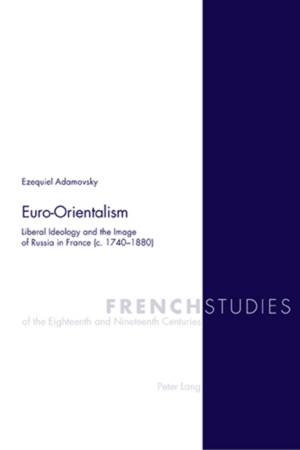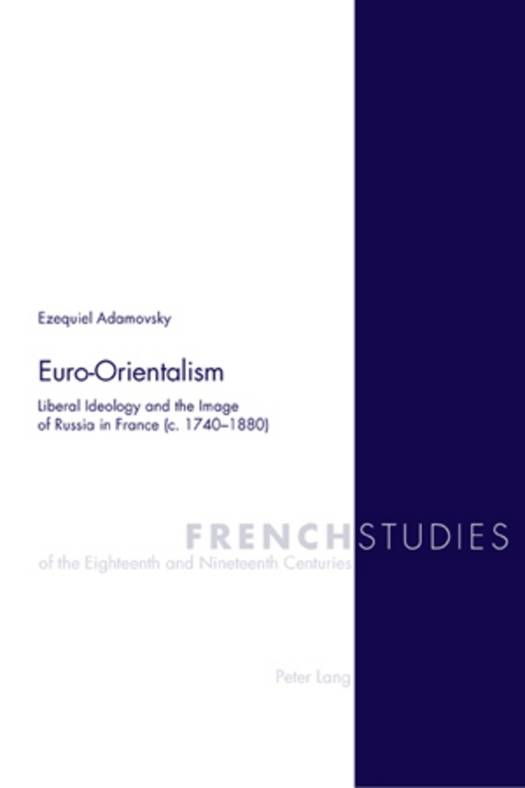
- Afhalen na 1 uur in een winkel met voorraad
- Gratis thuislevering in België vanaf € 30
- Ruim aanbod met 7 miljoen producten
- Afhalen na 1 uur in een winkel met voorraad
- Gratis thuislevering in België vanaf € 30
- Ruim aanbod met 7 miljoen producten
Zoeken
Euro-Orientalism
Liberal Ideology and the Image of Russia in France (c. 1740-1880)
Ezequiel Adamovsky
€ 103,95
+ 207 punten
Omschrijving
Drawing from a range of critical perspectives, in particular postcolonial, this book examines the relationship between perceptions of Russia and of Eastern Europe and the making of a 'Western' identity. It explores the ways in which the perception of certain characteristics of Russia and Eastern Europe, whether real or attributed, was shaped by (and used for) the construction of a liberal narrative of the West, which eventually became dominant. The focus of this inquiry is French culture, from the beginning of the debate about Russia among the philosophes (c.1740) to the consolidation of a professional field of Slavic studies (c.1880). A wide range of writing - literature, travel accounts, histories, political tracts, scientific journals, and parliamentary debates - is examined through the work of major authors (from Montesquieu, Diderot and Rousseau to Tocqueville, de Maistre and Guizot, from Mme. de Staël, Hugo and Balzac to Dumas, Michelet and Comte), as well as that of many less well known figures. The book also explores possible continuities between those first academic accounts of Russia and Eastern Europe and present-day scholarship in Europe and the USA, to show that the liberal ideological accounts constructed in the nineteenth century still to a great extent inform contemporary academic studies.
Specificaties
Betrokkenen
- Auteur(s):
- Uitgeverij:
Inhoud
- Aantal bladzijden:
- 364
- Taal:
- Engels
- Reeks:
- Reeksnummer:
- nr. 19
Eigenschappen
- Productcode (EAN):
- 9783039105168
- Verschijningsdatum:
- 8/05/2006
- Uitvoering:
- Paperback
- Afmetingen:
- 150 mm x 19 mm
- Gewicht:
- 500 g

Alleen bij Standaard Boekhandel
+ 207 punten op je klantenkaart van Standaard Boekhandel
Beoordelingen
We publiceren alleen reviews die voldoen aan de voorwaarden voor reviews. Bekijk onze voorwaarden voor reviews.











